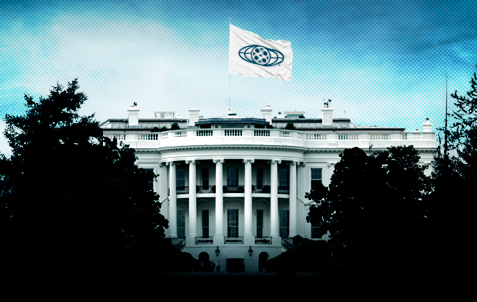Editorials
 |
After Anonymous pulled their support from WikiLeaks many thought the group would drift off into obscurity. After all, many in the press still think that Anonymous was formed after WikiLeaks started, so why not have that misguided opinion. The reality is that Anonymous existed long before WikiLeaks, and will continue to exist when WikiLeaks is a long forgotten memory. The collective (there is no leader despite what you might here from other media sources) has matured in many ways though, and does not appear to be hell-bent on hitting every single site that annoys them anymore. At least that is what we are seeing: there will always be members who will lash out or simply try to hack a site for the fun of it, but the collective has calmed for the most part.
- Details
- By Sean Kalinich
- Hits: 7012
Read more: And Like That; Anonymous is Back and Looking for...
 |
If you never thought that Copyright was out of hand then you might be interested to know that Copyright laws are being use to stomp on your right as a consumer to choose the mobile carrier you want and take any devices that you might own with you. The mobile phone industry (hand in hand with the carriers) is trying to put the baseband locks on a phone into the realm of copyrighted material. The way they are doing this is by claiming that the locks protecting the baseband are the same as those found on a DVD or Blu-ray disk. Since they have convinced the US lawmakers that this is so we now find that unlocking your phone (any phone) is illegal and punishable by a minimum of $2,500.
- Details
- By Sean Kalinich
- Hits: 4904
 |
The consumer electronic market is an interesting one. It is probably one of the only markets (with the exception of possibly the auto industry) to have the massive number of incorrect segmenting of products. One of the biggest areas of segmentation (incorrect segmentation) is in the “PC” market. Here the competition for products is insane. Back in the early days (the days when we had IBM Compatibles) things were relatively simple; at least they were on the surface. When you walked into a store and looked for a computer (if you were at all interested in having one back in the mid-90s) you saw IBM’s and their clones. One of the first computers I was exposed to was the Osborne One which actually predates the original IBM PC and the consolidation of the market in the early to mid-80s. In fact it was the introduction of the IBM PC combined with the Kaypro II portable that ended up killing Osborne and their chance in the market.
- Details
- By Sean Kalinich
- Hits: 4567
 |
Saturday marked the day that Megaupload was reborn in the form of Mega. It was an event that has had much talk since Kim Dotcom first announced that he would be doing this last year. It is also an event that many internet users have been looking forward to for a very long time. On the other side of the coin the content industry (including the MPAA, RIAA, BSA and others) have not been looking forward to this and have tried to make the tired old argument that ALL file sharing services are nothing more than a haven for piracy.
- Details
- By Sean Kalinich
- Hits: 3851
 |
Over the last couple of days we have talked about the expected push from the copyright lobby for harsher laws and longer copyright periods (not to mention more control over the internet). This is a campaign that has been going on since the days of affordable internet (56kbps) and is one that will never really stop. However during this long battle there have been some highlights that make us all wonder at the motives and sanity of the key players involved. We are talking about the many domain seizures (for sites that are operating legally) and also some of the highly publicized threats that the MPAA (the leading group in this war) have made over the course of the last year.
- Details
- By Sean Kalinich
- Hits: 10106
Read more: Why Did the MPAA and US DoJ Go After Megaupload...
More Articles …
Page 28 of 89



